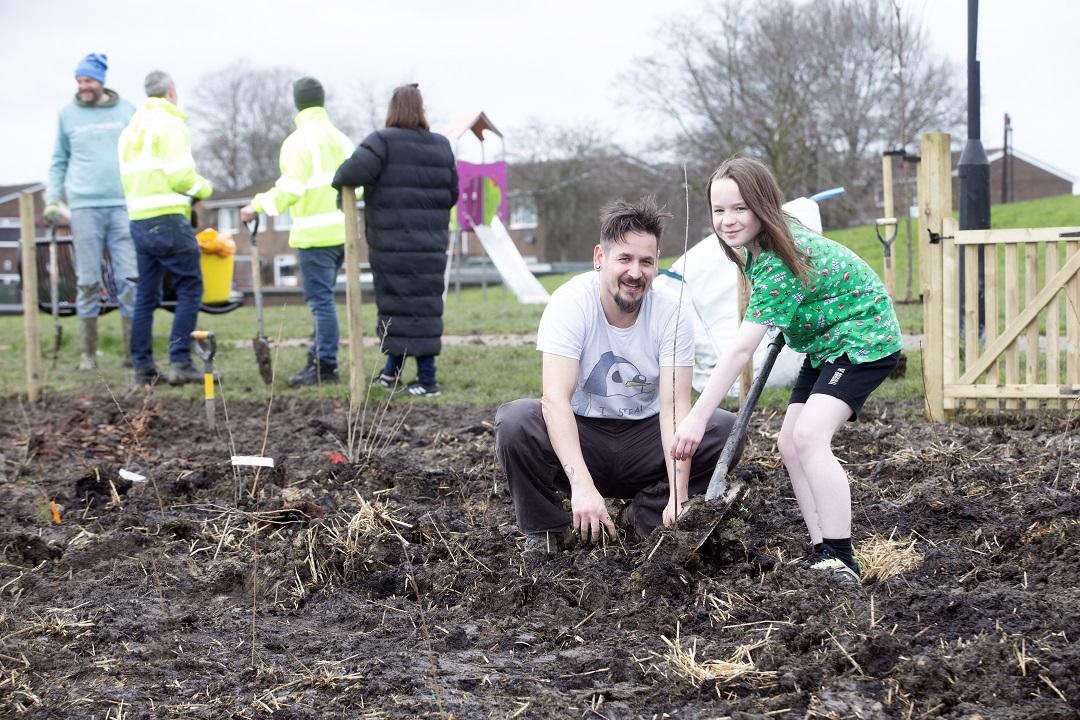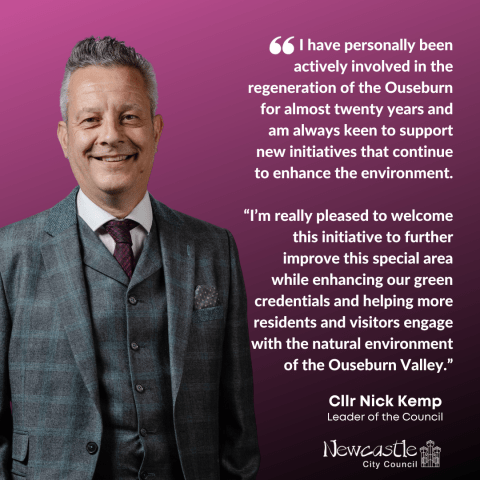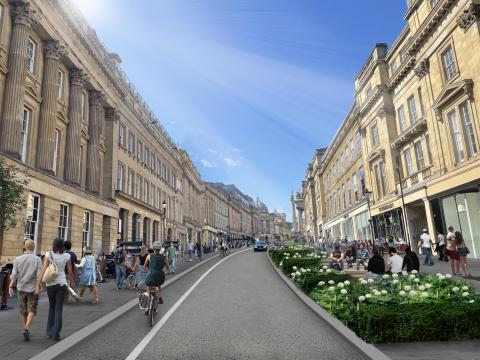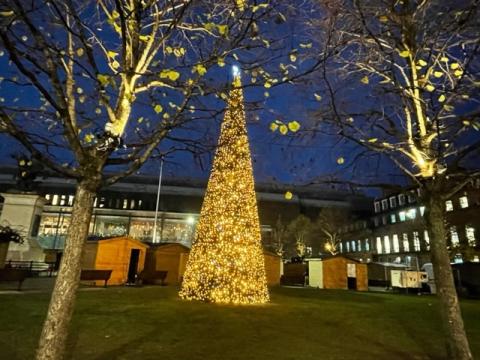29 November 2023
| | 2 min readAlmost 5000 trees and shrubs to be planted across the North East as part of a “Miyawaki” Tiny Forest initiative.
This winter will see the expansion of a project to create eight new Tiny Forests across the North East region.

The initiative is led by Earthwatch Europe and the North East Community Forest in partnership with the local authorities in Newcastle, Gateshead, South Tyneside, and Sunderland, further supported by Living Woods, the Freemen of Newcastle upon Tyne, and Urban Green Newcastle.
The Tiny Forests are based on the ‘Miyawaki Method’, which uses species of trees that would occur naturally in an area and that work together to create a diverse, multi-layered forest community. The trees are densely planted to encourage growth.
The Tiny Forests provide local wildlife and the community with a new area of woodland to enjoy. Each Tiny Forest is approximately 200m2, the size of a tennis court.
Local communities will be invited to plant, maintain and monitor each forest over time with the aim of reconnecting people with nature and raise awareness of climate change.
Cllr Marion Williams, Cabinet Member for a Connected, Clean City, Newcastle City Council said: “It is fantastic to hear about the expansion of the Tiny Forest project. These forests give local communities the chance to get involved with creating and maintaining a new, unique community space which supports wildlife, offers a space for outdoor recreation and helps to improve air quality.”
Lloyd Jones, Forest Manager, North East Community Forest said: “It is great that this project is expanding to more local communities and bringing new outdoor spaces for local people to enjoy. It shows our commitment to working with our partners across the region to expand the work of the North East Community Forest and ensure its positive impact can be enjoyed across the whole Community Forest area.”
Gateshead Council woodland creation officers have led the way on introducing Tiny Forests to the area. Councillor John McElroy, cabinet member for the environment and transport, said: “These new sites are very welcome to increase the tree cover in our area.
“The local community and our partners have worked together to promote the scheme, which will bring genuine environmental and social benefits to the region.”
Louise Hartley, Head of Nature in Cities, Earthwatch Europe said: “We’re so pleased to help bring another eight Tiny Forests to the North East region together with North East Community Forest and our partner local authorities – creating accessible green spaces that people of all ages can enjoy for decades to come. Tiny Forests are amazing community assets and provide an opportunity for people to make a real positive impact by supporting nature and biodiversity on their doorstep. Helping the trees take root and watching them flourish creates a very special connection with the forest and the wildlife that calls it their home.”
Mark Shipperlee, Operations Director of Living Woods commented “we are really pleased to be involved as a local partner in this project to establish “Tiny Forests” across the North East. It is great that it will provide more people, especially young people, with the chance to get involved in the magic of woodland creation, as well as bringing agency for people in this time of climate crisis. The Miyawaki method is an accelerated way of creating very small (predominantly urban) new woodlands, and when bolstered by careful plant species selection and ongoing “citizen science” it provides a great chance for very small, visible, sustainable woodlands in our communities. We look forward to working together with Earthwatch and local communities in the North East this planting season, to get these “micro-habitats” established in the region.”
The expansion of the project follows the successful planting of Tyne and Wear’s first Tiny Forest in West Denton in March this year.
The North East Community Forest (NECF) is a multi-million pound collaborative partnership between local authorities, combined authorities, and national, regional and local charities and agencies which will see tens of thousands of trees planted over the next 30 years.
If you would like to give us feedback on our website, please complete this short online form.







